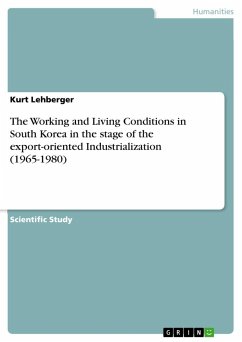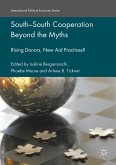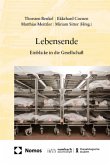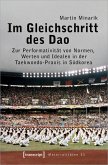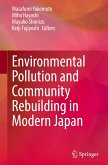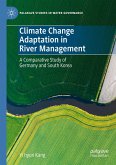Scientific Study from the year 1984 in the subject Sociology - Culture, Technology, Nations, grade: 1.0, Free University of Berlin, language: English, abstract: South Korea is currently subject of fierce discussion in the theoretical debate concerning development. South Korea's "take off" is not denied. During a period of 19 years the land of farmers becomes an industrial nation ranking in the world trade statistics among the first 20 states. The gross national product amounts to 35 % in 1980. During 1962-1980 the growth rates of the GNP comes to 8.4 % on average per year. The income per head amounts to 1,503 US$. With the illustration of the working conditions in chapter 1 it is intended on the one hand to disclose the exaggerated exploitation of the male and female workers and on the other hand to point out some differences in the extent of the attrition of the work forces.In chapter 2 the development of the remuneration und the destination factors of the wage findings are outlined. Herein it is also intended to disclose the fractions among the working force which have got above-average wage increases.The participation of the collection of national richness caused by the economic development is expressed in the changes within the consumption structure of the wage-earners' households. The shift in-between the consumptive expenditures will be the focus of chapter 3.In chapter 4 the development of the collective consumption of South Korea is drawn. Which measures are taken by the state in order to redistribute the national income in favour of the part of the population with low income? What about the social security system in South Korea? Is the state guaranteeing a minimum of living quality or are the poor left to themselves? In the last part of the essay (chapter 5) the development of the income distribution will finally be outlined in order to point out a possible polarisation of the population. At the same time the poverty in South Korea will be quantified and put into the context to the pursued economic way.
Bitte wählen Sie Ihr Anliegen aus.
Rechnungen
Retourenschein anfordern
Bestellstatus
Storno

